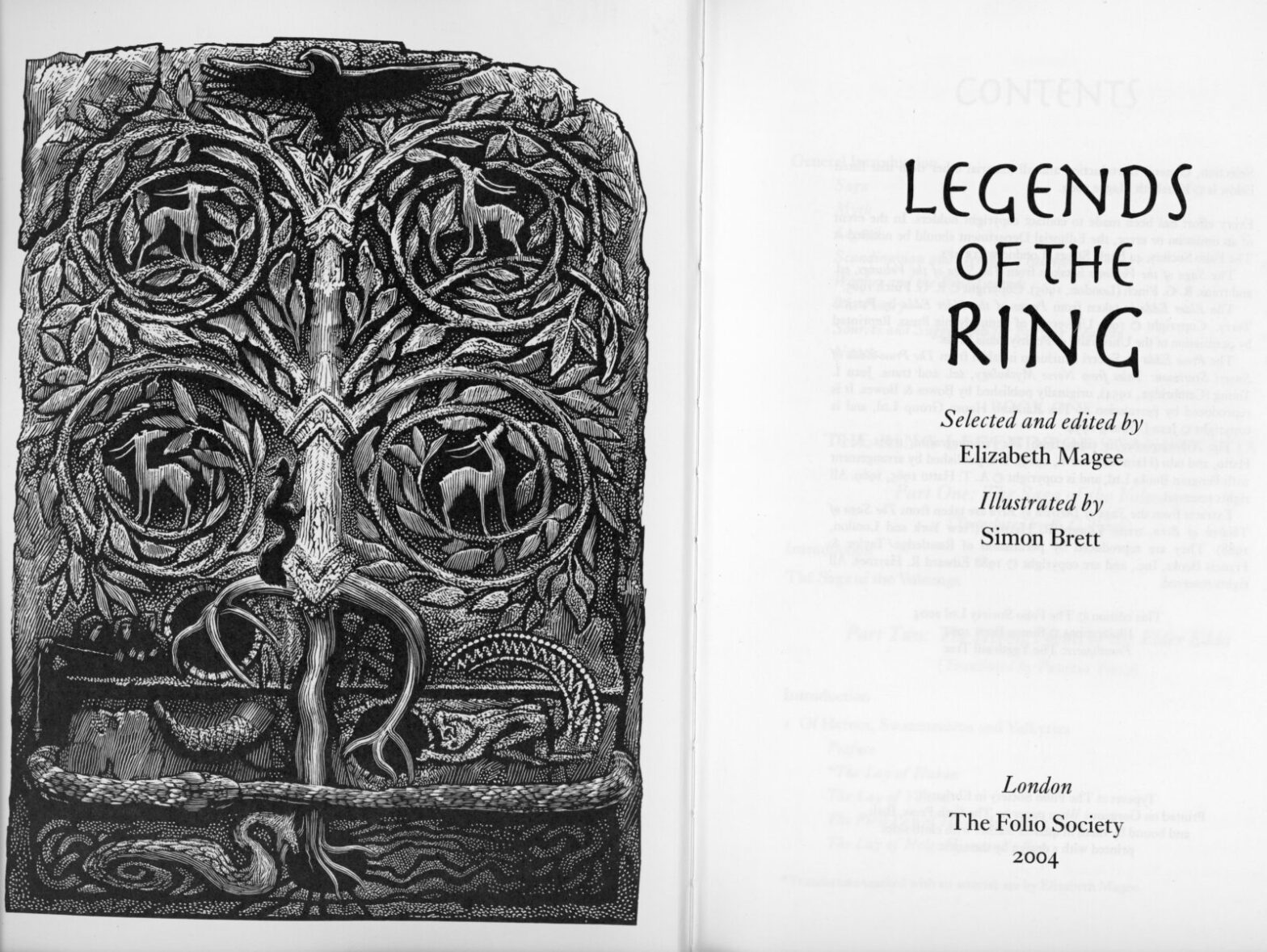This is Part One of Book Two of The Legends of The Ring. This section of the volume deals with The Ring Legends of Germany – the work of an Austrian poet composed around 1200-1204 and thus the earliest in this collection of Ring legend literature. Collected and published from 1755 onwards, the work, translated in prose by A.T. Hatto transposes the Icelandic sagas to mediaeval court life setting telling a tale of conspiracy, murder, and heroic ruin. Thus we learn about feudal kingship, honourable jousting and chivalrous knighthood peopled with a parade of splendour, female beauty, and magnificent fighting men. “And now far and wide and in great number the good knights began a most noble sport: you could see many there whose youthful hearts fired them with great zest, all fine, gallant knights beneath their shields! Magnificent women and bevies of lovely girls adorned in all their finery sat in the windows watching the pastime of all those fearless men, till the king and his friends took the field.”
The powerful prose narrative lacks the beauty of the Icelandic poetry of Book one, although it presents the tale in considerably more detail. It is subject to repetition and frequent pointers to disasters to come. On the same page we have “And indeed, in days to come, Hagen gashed many a shield and helmet.” and “But King Etzel’s queen parted many such pairs in sorrow, in days to come.” Later we are told that “yet the time would come when they grew so hostile towards him that they had no recourse but to slay him”.
As the final inevitable slaughter nears we have a true reflection of one of the harsh realities of war: ‘Alas for my brother who has just been killed here! What harrowing news reaches me incessantly. I shall always mourn for the noble Rüdiger, too – this vast loss and pain affect both sides.’ An early plea for forgiveness and reconciliation.
These illustrations by Simon Brett are relevant to this section of the work.






I’d love the book just for the illustrations. When I saw those, I kept thinking Tolkien’s Lord of the Rings. Lovely review and illustrations, Derrick!
Thank you so much, Pat
Those engravings are stunning; each one. This book is simply rich with them. I particularly like the face of the dying dragon, the postures of the quarreling queens, the posture of dying Sigurd. What an artist.
Thank you so much, Crystal
Great review!
Mr. Brett’s art always captures me in…such detail, such emotion!
(((HUGS))) and ❤️❤️ for you and Jackie!!
Thank you very much, Carolyn XX
The artworks are stunning Derrick
Thank you very much, Ivor
Once again, a very thoughtful review and incredible illustrations!
Thank you very much, Donna
Reading your review reminded me of reading Song of Roland. (Much violence and gore in Song of Roland.)
I don’t know that one – but it was the right memory to stir. Thanks very much, Liz
You’re welcome, Derrick. I’d fogotten that I learned about the chivalric tradition in college.
Magnifique
Merci beaucoup
Another fine review. I agree with all above about the stunning engravings.
Thank you very much, Merril
Those illustrations! Wowsah!
Yes! Glorious engravings!
Thank you very much, Clare
Thank you very much for the review Derrick
Much appreciated Sylvie
Outstanding illustrations.
Thank you very much, Dolly
The illustrations are very interesting. So detailed 💖
I think my previous comment disappeared. Those illustrations are beautiful!
Thank you very much, Lavinia